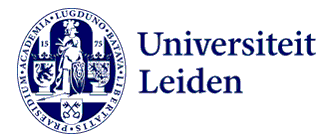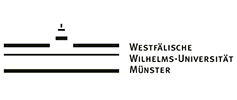The Religiosity of the Indonesian Constitution: Article 29(1) and Its Interpretation
DOI:
https://doi.org/10.31078/consrev722Keywords:
Article 29(1), Constitutional Court, Indonesian Constitution, Interreligious Marriage Case, PancasilaAbstract
This paper examines the problem of whether the inclusion of religious words in the Indonesian Constitution is tantamount to the establishment of a religious constitution. By focusing on the Constitution’s provision on “belief in the One and Only God” in Article 29(1), this paper challenges the received theory of the religiosity of the Constitution. To that end, the paper first investigates the doctrinal and historical implications of Article 29(1). Particular analysis concerns the implications of this constitutionalization for Islamic law. The Constitutional Court’s decision on interreligious marriage is critically examined as an example of how the received theory is endorsed and articulated in the case of marriage. This paper argues that Article 29(1) concerns all religions, without any implied exclusion of non-monotheistic religions. Moreover, this paper affirms what is called the Pancasila state, located between an exclusively secular state and a religious or theocratic state. This arguably makes the notion of the religiosity of the Constitution unjustified. The Constitutional Court, however, has interpreted Article 29(1) in a strongly religious sense, leading to religious supremacy and, accordingly, is contrary to how the Constitution ought to be understood.References
Abdul Rahman, Noor Aisha. “Muslim-Non-Muslim Marriage in Singapore.” In Muslim-Non-Muslim Marriage: Political and Cultural Contestations in Southeast Asia, edited by Gavin W. Jones, Chee Heng Leng, and Maznah Mohamad. Singapore: ISEAS, 2009.
Ahdar, Rex and Ian Leigh. Religious Freedom in the Liberal State. 2nd ed. Oxford: Oxford University Press, 2013.
Ali, Kecia. Sexual Ethics and Islam: Feminist Reflections on Qur’an, Hadith, and Jurisprudence. Oxford: Oneworld, 2006.
Ali, Muhamad. “Fatwas on Inter-Faith Marriage in Indonesia.” Studia Islamika: Indonesian Journal for Islamic Studies 9, no. 3 (2002).
Asmin. Status Perkawinan antar Agama Ditinjau dari Undang-Undang Perkawinan No. 1/1974 [The Status of Interreligious Marriage According to the Marriage Law No. 1/1974]. Jakarta: PT Dian Rakyat, 1986.
Backer, Larry Catá. “Theocratic Constitutionalism: An Introduction to a New Global Legal Ordering.” Indiana Journal of Global Legal Studies 16 (2009).
Basalim, Umar. Pro-Kontra Piagam Jakarta di Era Reformasi [Pros and Cons of the Jakarta Charter in the Reform Era]. Jakarta: Pustaka Indonesia Satu, 2002.
Butt, Simon. “Islam, the State and the Constitutional Court in Indonesia.” Pacific Rim Law & Policy Journal 19 (2010).
Cholil, Suhadi. “The Politico-Religious Contestation: Hardening of the Islamic Law on Muslim-Non-Muslim Marriage in Indonesia.” In Muslim-Non-Muslim Marriage: Political and Cultural Contestations in Southeast Asia, edited by Gavin W. Jones, Chee Heng Leng, and Maznah Mohamad. Singapore: ISEAS, 2009.
Constitution of France
Constitution of the Islamic Republic of Afghanistan.
Constitution of the Islamic Republic of Iran.
Constitution of the Republic of Indonesia 1945.
Constitution of the Republic of Turkey.
Darmaputera, Eka. Pancasila and the Search for Identity and Modernity in Indonesian Society: A Cultural and Ethical Analysis. Leiden: E. J. Brill, 1988.
Decree of District Court of Blora No. 71/Pdt.P/2017/PN Bla (The Supreme Court of the Republic of Indonesia, 2017).
Decree of District Court of South Jakarta No. 1139/Pdt.P/2018/PN.Jkt.Sel (The Supreme Court of the Republic of Indonesia, 2019).
Decree of District Court of Surakarta No. 186/Pdt.P/2018/PN.Skt (The Supreme Court of the Republic of Indonesia, 2018).
Decree of District Court of Ungaran No. 08/Pdt.P/2013/PN.Ung (The Supreme Court of the Republic of Indonesia, 2013).
Dustūr Jumhūriyyah Mis.r al-‘Arabiyyah [Constitution of the Arab Republic of Egypt].
Elson, R.E. “Two Failed Attempts to Islamize the Indonesian Constitution.” SOJOURN: Journal of Social Issues in Southeast Asia 28, no. 3 (November 2013).
Indonesian Ulema Council Fatwa No. 4/MUNAS VII/MUI/8/2005 on Interreligious Marriages (28 July 2005).
Friedmann, Yohanan. Tolerance and Coercion in Islam: Interfaith Relations in the Muslim Tradition. Cambridge: Cambridge University Press, 2003.
Gautama, Sudargo. “Mahkamah Agung dan Keanekaragaman Hukum Perdata [The Supreme Court and the Plurality of Private Law].” Hukum dan Pembangunan 17, No. 2 (1987).
Global Legal Research Directorate. Prohibition of Interfaith Marriage. The Law Library of Congress, 2015. https://www.loc.gov/law/help/marriage/ prohibition-of-interfaith-marriage.pdf.
Hadikusuma, Hilman. Hukum Perkawinan Indonesia Menurut Perundangan, Hukum Adat, Hukum Agama [Marriage Law in Indonesia According to Legislation, Customary Law, Religious Law]. Bandung: Mandar Maju, 1990.
Hazairin. Demokrasi Pantjasila [Pancasila Democracy]. Jakarta: Tintamas, 1970.
Hirschl, Ran. Constitutional Theocracy. London: Harvard University Press, 2010.
Hosen, Nadirsyah. Shari’a and Constitutional Reform in Indonesia. Singapore: ISEAS, 2007.
Human Rights Committee. “General Comment No. 19: Article 23 (The Family) Protection of the Family, the Right to Marriage and Equality of the Spouses.” 39th Sess., UN Doc. CCPR/C/21/Rev.1/Add.2 (27 July 1990).
Ibn Qudāmah, Muwaffaq al-Dīn Abū Muh. ammad ‘Abd Allāh ibn Ah. mad ibn Muh. ammad. Al-Mugnī [The Enricher]. Vol. 7. Beirut: Dār al-Kitāb al-‘Arabī, 1983.
Ibn Rushd, Abū al-Walīd. Bidāyah Al-Mujtahid Wa Nihāyah al-Muqtas.id [The Beginning for the One Who Exercises Independent Reasoning and the End for the One Who Would Limit Himself]. 6th ed. Vol. 2. 2 vols. Beirut: Dār al-Ma‘rifah, 1982.
Ichtijanto. Perkawinan Campuran dalam Negara Republik Indonesia [Mixed Marriage in the Republic of Indonesia]. Jakarta: Badan Litbang Agama dan Diklat Keagamaan Departemen Agama RI, 2003.
“International Covenant on Civil and Political Rights.” Opened for signature 19 December 1966, 999 UNTS 171 (entered into force 23 March 1976).
Judicial Review of Blasphemy Law, Decision of Constitutional Court No. 140/ PUU-VII/2009 (The Constitutional Court of the Republic of Indonesia, 2010).
Judicial Review of Criminal Law, Decision of Constitutional Court No. 46/PUU- XIV/2016 (The Constitutional Court of the Republic of Indonesia, 2017).
Judicial Review of Marriage Law, Decision of Constitutional Court No. 12/ PUU-V/2007 (The Constitutional Court of the Republic of Indonesia, 2007).
Judicial Review of Marriage Law, Decision of Constitutional Court No. 30-74/ PUU-XII/2014 (The Constitutional Court of the Republic of Indonesia, 2015).
Judicial Review of Marriage Law, Decision of Constitutional Court No. 46/PUU- VIII/2010 (The Constitutional Court of the Republic of Indonesia, 2012).
Judicial Review of Marriage Law, Decision of Constitutional Court No. 68/PUU- XII/2014 (The Constitutional Court of the Republic of Indonesia, 2015).
Judicial Review of Marriage Law, Decision of Constitutional Court No. 69/PUU- XIII/2015 (The Constitutional Court of the Republic of Indonesia, 2016).
Judicial Review of Population Administration Law, Decision of Constitutional Court No. 97/PUU-XIV/2016 (The Constitutional Court of the Republic of Indonesia, 2017).
Judicial Review of Supreme Court Law, Decision of Constitutional Court No. 27/ PUU-VII/2009 (The Constitutional Court of the Republic of Indonesia, 2010).
Kamāl al-Dīn Muh. ammad ibn ‘Abd al-Wāh. id, Ibn al-Humām. Sharh. Fath. al-Qadīr [Commentary on Fath. al-Qadīr] 3. Beirut: Dār al-Kutub al-‘Ilmiyyah, 2003.
Koschorke, Judith. “Legal Pluralism in Indonesia: The Case of Interfaith Marriages Involving Muslims.” In Legal Pluralism in Muslim Contexts, edited by Norbert Oberauer, Yvonne Prief, and Ulrike Qubaja, 199–229. Leiden, The Netherlands: Brill, 2019. https://doi.org/10.1163/9789004398269_010.
Kuru, Ahmet T. Secularism and State Policies toward Religion: The United States, France and Turkey. New York: Cambridge University Press, 2009.
Kusuma, A. B., ed. Lahirnya Undang-Undang Dasar 1945: Memuat Salinan Dokumen Otentik Badan Oentoek Menyelidiki Oesaha2 Persiapan Kemerdekaan [The Birth of the 1945 Constitution: Containing Copies of Authentic Documents of the Investigating Committee for the Preparation for Indonesian Independence]. Revised. Jakarta: Badan Penerbit Fakultas Hukum Universitas Indonesia, 2009.
Law No. 1 of 1974 on Marriage.
Law No. 23 of 2006 on Population Administration.
Law No. 39 of 1999 on Human Rights.
Letter of Director General of Population and Civil Registry No. 472.2/3315/ DUKCAPIL on Explanation in Matters of Civil Registry, 2019.
Lukito, Ratno. Legal Pluralism in Indonesia: Bridging the Unbridgeable. London and New York: Routledge, 2013.
Majelis Permusyawaratan Rakyat Republik Indonesia [People’s Consultative Assembly]. Risalah Perubahan Undang-Undang Dasar Negara Republik Indonesia Tahun 1945: Tahun Sidang 2000, Buku Lima [Minutes of the Amendment of the 1945 Constitution of the Republic of Indonesia: Meeting Year 2000, Book Five]. Revised. Jakarta: Sekretariat Jenderal, 2010.
Majelis Permusyawaratan Rakyat Republik Indonesia [People’s Consultative Assembly]. Risalah Perubahan Undang-Undang Dasar Negara Republik Indonesia Tahun 1945: Tahun Sidang 2000, Buku Satu [Minutes of the Amendment of the 1945 Constitution of the Republic of Indonesia: Meeting Year 2000, Book One]. Revised. Jakarta: Sekretariat Jenderal, 2010.
Majelis Permusyawaratan Rakyat Republik Indonesia [People’s Consultative Assembly]. Risalah Perubahan Undang-Undang Dasar Negara Republik Indonesia Tahun 1945: Tahun Sidang 2000, Buku Tujuh [Minutes of the Amendment of the 1945 Constitution of the Republic of Indonesia: Meeting Year 2000, Book Seven]. Revised. Jakarta: Sekretariat Jenderal, 2010.
Majelis Permusyawaratan Rakyat Republik Indonesia [People’s Consultative Assembly]. Risalah Perubahan Undang-Undang Dasar Negara Republik Indonesia Tahun 1945: Tahun Sidang 2002, Buku Lima [Minutes of the Amendment of the 1945 Constitution of the Republic of Indonesia: Meeting Year 2002, Book Five]. Revised. Jakarta: Sekretariat Jenderal, 2010.
Māwardī, Abū al-H. asan ‘Alī ibn Muh. ammad ibn Habīb al-. Al-H. āwī al-Kabīr fī Fiqh al-Imām al-Shāfi‘ī [The Large Container in the Jurisprudence of Imam Shafi’i]. Vol. 9. 18 vols. Beirut: Dār al-Kutub al-‘Ilmiyyah, 1994.
Mughniyyah, Muh.ammad Jawād. Al-Fiqh ‘alā al-Mażāhib al-Khamsah [Islamic Law According to Five Schools of Law]. 10th ed. Vol. 2. 2 vols. Beirut: Dār al-Tayyār al-Jadīd, 2008.
Mujiburrahman. Feeling Threatened: Muslim-Christian Relations in Indonesia’s New Order. Amsterdam University Press, 2006.
Mulia, Siti Musdah. “Promoting Gender Equity Through Interreligious Marriage: Empowering Indonesian Women.” In Muslim-Non-Muslim Marriage: Political and Cultural Contestations in Southeast Asia, edited by Gavin W Jones, Chee Heng Leng, and Maznah Mohamad. Singapore: ISEAS, 2009.
Nasir, Jamal J.A. The Status of Women under Islamic Law and Modern Islamic Legislation. 3rd ed. Leiden and Boston: Brill, 2009.
Nasir, Mohamad Abdun. “Religion, Law, and Identity: Contending Authorities on Interfaith Marriage in Lombok, Indonesia.” Islam and Christian–Muslim Relations 31, No. 2 (2 April 2020). https://doi.org/10.1080/09596410.2020.17 73618.
Pompe, Sebastiaan. “Mixed Marriages in Indonesia: Some Comments on the Law and the Literature.” Bijdragen Tot de Taal-, Land- En Volkenkunde 144, No. 2/3 (1988): 259–75.
Ramulyo, Mohd. Idris. Tinjauan Beberapa Pasal Undang-Undang Nomor 1 Tahun 1974 dari Segi Hukum Perkawinan Islam [Review of Some Articles of Law No. 1 of 1974 from the Perspective of Islamic Marriage Law]. Jakarta: IHC, 1986.
Rid.ā, Muh.ammad Rashīd. Tafsīr al-Qur’ān al-h.akīm (Tafsīr al-Mannār) [Commentary on al-Qur’an (al-Mannār Commentary)]. Vol. 6. 12 vols. Cairo: Dār al-Mannār, 1947.
Rusli, and R. Tama. Perkawinan antar Agama dan Masalahnya sebagai Pelengkap UU Perkawinan No. 1 Th. 1974 [Interreligious Marriage and its Problem as an Addition to the Marriage Law No. 1 of 1974]. Bandung: Shantika Dharma, 1984.
Sapir, Gideon, and Daniel Statman. “Religious Marriage in a Liberal State.” In Constitutional Secularism in an Age of Religious Revival, edited by Susanna Mancini and Michel Rosenfeld, 269–82. Oxford: Oxford University Press, 2014. https://doi.org/10.1093/acprof:oso/9780199660384.003.0015.
Sezgin, Yüksel. Human Rights under State-Enforced Religious Family Laws in Israel, Egypt and India. Cambridge Studies in Law and Society. Cambridge: Cambridge University Press, 2013. https://doi.org/10.1017/CBO9781139649612.
Shachar, Ayelet. “Faith in Law? Diffusing Tensions Between Diversity and Equality.” In Marriage and Divorce in a Multicultural Context: Multi-Tiered Marriage and the Boundaries of Civil Law and Religion, edited by Joel A. Nichols, 341. Cambridge: Cambridge University Press, 2012.
Simorangkir, J.C.T. “Peranserta Gereja/Warga Gereja dalam Pembangunan dan Penegakan Hukum di Indonesia dalam Hukum [The Role of Church/Church Members in the Development and the Law Enforcement in Indonesia in the Law].” In Pelaksanaan Undang-Undang Perkawinan dalam Perspektif Kristen [Implementation of the Marriage Law from the Christian Perspective], edited by Weinata Sairin and Joseph Marcus Pattiasina, 33–69. Jakarta: PT BPK Gunung Mulia, 1994.
Subekti, Valina Singka. Menyusun Konstitusi Transisi: Pergulatan Kepentingan dan Pemikiran dalam Proses Perubahan UUD 1945 [Drafting the Transitional Constitution: The Struggle of Interest and Ideas in the Process of the Amendment of the 1945 Constitution]. Jakarta: PT RajaGrafindo Persada, 2008.
Supreme Court Decree No. 1977 K/Pdt/2017 (The Supreme Court of the Republic of Indonesia, 2017).
Temperman, Jeroen. State-Religion Relationships and Human Rights Law: Towards a Right to Religiously Neutral Governance. Leiden and Boston: Martinus Nijhoff Publishers, 2010.
Tim Penyusun Naskah Komprehensif Proses dan Hasil Perubahan UUD 1945 [Drafting Team of the Comprehensive Text of the Processes and Results of the Amendment of the 1945 Constitution]. Naskah Komprehensif Perubahan Undang-Undang Dasar Negara Republik Indonesia Tahun 1945: Latar Belakang, Proses, dan Hasil Pembahasan 1999-2002, Buku VIII Warga Negara dan Penduduk, Hak Asasi Manusia dan Agama [Comprehensive Text of the Amendment of the 1945 Constitution of the Republic of Indonesia: Background, Processes, and Debates Results 1999-2002, Book VIII Citizens and Population, Human Rights and Religion]. Revised. Jakarta: Sekretariat Jenderal dan Kepaniteraan Mahkamah Konstitusi, 2010.
“Tunisia Lifts Ban on Muslim Women Marrying Non-Muslims.” Aljazeera, 14 September 2017. https://www.aljazeera.com/news/2017/09/14/tunisia-lifts- ban-on-muslim-women-marrying-non-muslims/.
United States Constitution.
“Universal Declaration of Human Rights.” GA Res. 217A (III), UN GAOR, UN Doc. A/810 (10 December 1948).
Yamin, Mohammad. Pembahasan Undang-Undang Dasar Republik Indonesia [Commentary on the Constitution of the Republic of Indonesia]. Jakarta: Jajasan Prapantja, 1960.
Zaydān, ‘Abd al-Karīm. Ah. kām al-Żimmiyyīn wa al-Musta’minīn fī Dār al-Islām [Laws on Non-Muslims and Asylum-Seekers in the Muslim Territory]. Beirut: Mu‘assasah al-Risālah and Maktabah al-Quds, 1982.
Ahdar, Rex and Ian Leigh. Religious Freedom in the Liberal State. 2nd ed. Oxford: Oxford University Press, 2013.
Ali, Kecia. Sexual Ethics and Islam: Feminist Reflections on Qur’an, Hadith, and Jurisprudence. Oxford: Oneworld, 2006.
Ali, Muhamad. “Fatwas on Inter-Faith Marriage in Indonesia.” Studia Islamika: Indonesian Journal for Islamic Studies 9, no. 3 (2002).
Asmin. Status Perkawinan antar Agama Ditinjau dari Undang-Undang Perkawinan No. 1/1974 [The Status of Interreligious Marriage According to the Marriage Law No. 1/1974]. Jakarta: PT Dian Rakyat, 1986.
Backer, Larry Catá. “Theocratic Constitutionalism: An Introduction to a New Global Legal Ordering.” Indiana Journal of Global Legal Studies 16 (2009).
Basalim, Umar. Pro-Kontra Piagam Jakarta di Era Reformasi [Pros and Cons of the Jakarta Charter in the Reform Era]. Jakarta: Pustaka Indonesia Satu, 2002.
Butt, Simon. “Islam, the State and the Constitutional Court in Indonesia.” Pacific Rim Law & Policy Journal 19 (2010).
Cholil, Suhadi. “The Politico-Religious Contestation: Hardening of the Islamic Law on Muslim-Non-Muslim Marriage in Indonesia.” In Muslim-Non-Muslim Marriage: Political and Cultural Contestations in Southeast Asia, edited by Gavin W. Jones, Chee Heng Leng, and Maznah Mohamad. Singapore: ISEAS, 2009.
Constitution of France
Constitution of the Islamic Republic of Afghanistan.
Constitution of the Islamic Republic of Iran.
Constitution of the Republic of Indonesia 1945.
Constitution of the Republic of Turkey.
Darmaputera, Eka. Pancasila and the Search for Identity and Modernity in Indonesian Society: A Cultural and Ethical Analysis. Leiden: E. J. Brill, 1988.
Decree of District Court of Blora No. 71/Pdt.P/2017/PN Bla (The Supreme Court of the Republic of Indonesia, 2017).
Decree of District Court of South Jakarta No. 1139/Pdt.P/2018/PN.Jkt.Sel (The Supreme Court of the Republic of Indonesia, 2019).
Decree of District Court of Surakarta No. 186/Pdt.P/2018/PN.Skt (The Supreme Court of the Republic of Indonesia, 2018).
Decree of District Court of Ungaran No. 08/Pdt.P/2013/PN.Ung (The Supreme Court of the Republic of Indonesia, 2013).
Dustūr Jumhūriyyah Mis.r al-‘Arabiyyah [Constitution of the Arab Republic of Egypt].
Elson, R.E. “Two Failed Attempts to Islamize the Indonesian Constitution.” SOJOURN: Journal of Social Issues in Southeast Asia 28, no. 3 (November 2013).
Indonesian Ulema Council Fatwa No. 4/MUNAS VII/MUI/8/2005 on Interreligious Marriages (28 July 2005).
Friedmann, Yohanan. Tolerance and Coercion in Islam: Interfaith Relations in the Muslim Tradition. Cambridge: Cambridge University Press, 2003.
Gautama, Sudargo. “Mahkamah Agung dan Keanekaragaman Hukum Perdata [The Supreme Court and the Plurality of Private Law].” Hukum dan Pembangunan 17, No. 2 (1987).
Global Legal Research Directorate. Prohibition of Interfaith Marriage. The Law Library of Congress, 2015. https://www.loc.gov/law/help/marriage/ prohibition-of-interfaith-marriage.pdf.
Hadikusuma, Hilman. Hukum Perkawinan Indonesia Menurut Perundangan, Hukum Adat, Hukum Agama [Marriage Law in Indonesia According to Legislation, Customary Law, Religious Law]. Bandung: Mandar Maju, 1990.
Hazairin. Demokrasi Pantjasila [Pancasila Democracy]. Jakarta: Tintamas, 1970.
Hirschl, Ran. Constitutional Theocracy. London: Harvard University Press, 2010.
Hosen, Nadirsyah. Shari’a and Constitutional Reform in Indonesia. Singapore: ISEAS, 2007.
Human Rights Committee. “General Comment No. 19: Article 23 (The Family) Protection of the Family, the Right to Marriage and Equality of the Spouses.” 39th Sess., UN Doc. CCPR/C/21/Rev.1/Add.2 (27 July 1990).
Ibn Qudāmah, Muwaffaq al-Dīn Abū Muh. ammad ‘Abd Allāh ibn Ah. mad ibn Muh. ammad. Al-Mugnī [The Enricher]. Vol. 7. Beirut: Dār al-Kitāb al-‘Arabī, 1983.
Ibn Rushd, Abū al-Walīd. Bidāyah Al-Mujtahid Wa Nihāyah al-Muqtas.id [The Beginning for the One Who Exercises Independent Reasoning and the End for the One Who Would Limit Himself]. 6th ed. Vol. 2. 2 vols. Beirut: Dār al-Ma‘rifah, 1982.
Ichtijanto. Perkawinan Campuran dalam Negara Republik Indonesia [Mixed Marriage in the Republic of Indonesia]. Jakarta: Badan Litbang Agama dan Diklat Keagamaan Departemen Agama RI, 2003.
“International Covenant on Civil and Political Rights.” Opened for signature 19 December 1966, 999 UNTS 171 (entered into force 23 March 1976).
Judicial Review of Blasphemy Law, Decision of Constitutional Court No. 140/ PUU-VII/2009 (The Constitutional Court of the Republic of Indonesia, 2010).
Judicial Review of Criminal Law, Decision of Constitutional Court No. 46/PUU- XIV/2016 (The Constitutional Court of the Republic of Indonesia, 2017).
Judicial Review of Marriage Law, Decision of Constitutional Court No. 12/ PUU-V/2007 (The Constitutional Court of the Republic of Indonesia, 2007).
Judicial Review of Marriage Law, Decision of Constitutional Court No. 30-74/ PUU-XII/2014 (The Constitutional Court of the Republic of Indonesia, 2015).
Judicial Review of Marriage Law, Decision of Constitutional Court No. 46/PUU- VIII/2010 (The Constitutional Court of the Republic of Indonesia, 2012).
Judicial Review of Marriage Law, Decision of Constitutional Court No. 68/PUU- XII/2014 (The Constitutional Court of the Republic of Indonesia, 2015).
Judicial Review of Marriage Law, Decision of Constitutional Court No. 69/PUU- XIII/2015 (The Constitutional Court of the Republic of Indonesia, 2016).
Judicial Review of Population Administration Law, Decision of Constitutional Court No. 97/PUU-XIV/2016 (The Constitutional Court of the Republic of Indonesia, 2017).
Judicial Review of Supreme Court Law, Decision of Constitutional Court No. 27/ PUU-VII/2009 (The Constitutional Court of the Republic of Indonesia, 2010).
Kamāl al-Dīn Muh. ammad ibn ‘Abd al-Wāh. id, Ibn al-Humām. Sharh. Fath. al-Qadīr [Commentary on Fath. al-Qadīr] 3. Beirut: Dār al-Kutub al-‘Ilmiyyah, 2003.
Koschorke, Judith. “Legal Pluralism in Indonesia: The Case of Interfaith Marriages Involving Muslims.” In Legal Pluralism in Muslim Contexts, edited by Norbert Oberauer, Yvonne Prief, and Ulrike Qubaja, 199–229. Leiden, The Netherlands: Brill, 2019. https://doi.org/10.1163/9789004398269_010.
Kuru, Ahmet T. Secularism and State Policies toward Religion: The United States, France and Turkey. New York: Cambridge University Press, 2009.
Kusuma, A. B., ed. Lahirnya Undang-Undang Dasar 1945: Memuat Salinan Dokumen Otentik Badan Oentoek Menyelidiki Oesaha2 Persiapan Kemerdekaan [The Birth of the 1945 Constitution: Containing Copies of Authentic Documents of the Investigating Committee for the Preparation for Indonesian Independence]. Revised. Jakarta: Badan Penerbit Fakultas Hukum Universitas Indonesia, 2009.
Law No. 1 of 1974 on Marriage.
Law No. 23 of 2006 on Population Administration.
Law No. 39 of 1999 on Human Rights.
Letter of Director General of Population and Civil Registry No. 472.2/3315/ DUKCAPIL on Explanation in Matters of Civil Registry, 2019.
Lukito, Ratno. Legal Pluralism in Indonesia: Bridging the Unbridgeable. London and New York: Routledge, 2013.
Majelis Permusyawaratan Rakyat Republik Indonesia [People’s Consultative Assembly]. Risalah Perubahan Undang-Undang Dasar Negara Republik Indonesia Tahun 1945: Tahun Sidang 2000, Buku Lima [Minutes of the Amendment of the 1945 Constitution of the Republic of Indonesia: Meeting Year 2000, Book Five]. Revised. Jakarta: Sekretariat Jenderal, 2010.
Majelis Permusyawaratan Rakyat Republik Indonesia [People’s Consultative Assembly]. Risalah Perubahan Undang-Undang Dasar Negara Republik Indonesia Tahun 1945: Tahun Sidang 2000, Buku Satu [Minutes of the Amendment of the 1945 Constitution of the Republic of Indonesia: Meeting Year 2000, Book One]. Revised. Jakarta: Sekretariat Jenderal, 2010.
Majelis Permusyawaratan Rakyat Republik Indonesia [People’s Consultative Assembly]. Risalah Perubahan Undang-Undang Dasar Negara Republik Indonesia Tahun 1945: Tahun Sidang 2000, Buku Tujuh [Minutes of the Amendment of the 1945 Constitution of the Republic of Indonesia: Meeting Year 2000, Book Seven]. Revised. Jakarta: Sekretariat Jenderal, 2010.
Majelis Permusyawaratan Rakyat Republik Indonesia [People’s Consultative Assembly]. Risalah Perubahan Undang-Undang Dasar Negara Republik Indonesia Tahun 1945: Tahun Sidang 2002, Buku Lima [Minutes of the Amendment of the 1945 Constitution of the Republic of Indonesia: Meeting Year 2002, Book Five]. Revised. Jakarta: Sekretariat Jenderal, 2010.
Māwardī, Abū al-H. asan ‘Alī ibn Muh. ammad ibn Habīb al-. Al-H. āwī al-Kabīr fī Fiqh al-Imām al-Shāfi‘ī [The Large Container in the Jurisprudence of Imam Shafi’i]. Vol. 9. 18 vols. Beirut: Dār al-Kutub al-‘Ilmiyyah, 1994.
Mughniyyah, Muh.ammad Jawād. Al-Fiqh ‘alā al-Mażāhib al-Khamsah [Islamic Law According to Five Schools of Law]. 10th ed. Vol. 2. 2 vols. Beirut: Dār al-Tayyār al-Jadīd, 2008.
Mujiburrahman. Feeling Threatened: Muslim-Christian Relations in Indonesia’s New Order. Amsterdam University Press, 2006.
Mulia, Siti Musdah. “Promoting Gender Equity Through Interreligious Marriage: Empowering Indonesian Women.” In Muslim-Non-Muslim Marriage: Political and Cultural Contestations in Southeast Asia, edited by Gavin W Jones, Chee Heng Leng, and Maznah Mohamad. Singapore: ISEAS, 2009.
Nasir, Jamal J.A. The Status of Women under Islamic Law and Modern Islamic Legislation. 3rd ed. Leiden and Boston: Brill, 2009.
Nasir, Mohamad Abdun. “Religion, Law, and Identity: Contending Authorities on Interfaith Marriage in Lombok, Indonesia.” Islam and Christian–Muslim Relations 31, No. 2 (2 April 2020). https://doi.org/10.1080/09596410.2020.17 73618.
Pompe, Sebastiaan. “Mixed Marriages in Indonesia: Some Comments on the Law and the Literature.” Bijdragen Tot de Taal-, Land- En Volkenkunde 144, No. 2/3 (1988): 259–75.
Ramulyo, Mohd. Idris. Tinjauan Beberapa Pasal Undang-Undang Nomor 1 Tahun 1974 dari Segi Hukum Perkawinan Islam [Review of Some Articles of Law No. 1 of 1974 from the Perspective of Islamic Marriage Law]. Jakarta: IHC, 1986.
Rid.ā, Muh.ammad Rashīd. Tafsīr al-Qur’ān al-h.akīm (Tafsīr al-Mannār) [Commentary on al-Qur’an (al-Mannār Commentary)]. Vol. 6. 12 vols. Cairo: Dār al-Mannār, 1947.
Rusli, and R. Tama. Perkawinan antar Agama dan Masalahnya sebagai Pelengkap UU Perkawinan No. 1 Th. 1974 [Interreligious Marriage and its Problem as an Addition to the Marriage Law No. 1 of 1974]. Bandung: Shantika Dharma, 1984.
Sapir, Gideon, and Daniel Statman. “Religious Marriage in a Liberal State.” In Constitutional Secularism in an Age of Religious Revival, edited by Susanna Mancini and Michel Rosenfeld, 269–82. Oxford: Oxford University Press, 2014. https://doi.org/10.1093/acprof:oso/9780199660384.003.0015.
Sezgin, Yüksel. Human Rights under State-Enforced Religious Family Laws in Israel, Egypt and India. Cambridge Studies in Law and Society. Cambridge: Cambridge University Press, 2013. https://doi.org/10.1017/CBO9781139649612.
Shachar, Ayelet. “Faith in Law? Diffusing Tensions Between Diversity and Equality.” In Marriage and Divorce in a Multicultural Context: Multi-Tiered Marriage and the Boundaries of Civil Law and Religion, edited by Joel A. Nichols, 341. Cambridge: Cambridge University Press, 2012.
Simorangkir, J.C.T. “Peranserta Gereja/Warga Gereja dalam Pembangunan dan Penegakan Hukum di Indonesia dalam Hukum [The Role of Church/Church Members in the Development and the Law Enforcement in Indonesia in the Law].” In Pelaksanaan Undang-Undang Perkawinan dalam Perspektif Kristen [Implementation of the Marriage Law from the Christian Perspective], edited by Weinata Sairin and Joseph Marcus Pattiasina, 33–69. Jakarta: PT BPK Gunung Mulia, 1994.
Subekti, Valina Singka. Menyusun Konstitusi Transisi: Pergulatan Kepentingan dan Pemikiran dalam Proses Perubahan UUD 1945 [Drafting the Transitional Constitution: The Struggle of Interest and Ideas in the Process of the Amendment of the 1945 Constitution]. Jakarta: PT RajaGrafindo Persada, 2008.
Supreme Court Decree No. 1977 K/Pdt/2017 (The Supreme Court of the Republic of Indonesia, 2017).
Temperman, Jeroen. State-Religion Relationships and Human Rights Law: Towards a Right to Religiously Neutral Governance. Leiden and Boston: Martinus Nijhoff Publishers, 2010.
Tim Penyusun Naskah Komprehensif Proses dan Hasil Perubahan UUD 1945 [Drafting Team of the Comprehensive Text of the Processes and Results of the Amendment of the 1945 Constitution]. Naskah Komprehensif Perubahan Undang-Undang Dasar Negara Republik Indonesia Tahun 1945: Latar Belakang, Proses, dan Hasil Pembahasan 1999-2002, Buku VIII Warga Negara dan Penduduk, Hak Asasi Manusia dan Agama [Comprehensive Text of the Amendment of the 1945 Constitution of the Republic of Indonesia: Background, Processes, and Debates Results 1999-2002, Book VIII Citizens and Population, Human Rights and Religion]. Revised. Jakarta: Sekretariat Jenderal dan Kepaniteraan Mahkamah Konstitusi, 2010.
“Tunisia Lifts Ban on Muslim Women Marrying Non-Muslims.” Aljazeera, 14 September 2017. https://www.aljazeera.com/news/2017/09/14/tunisia-lifts- ban-on-muslim-women-marrying-non-muslims/.
United States Constitution.
“Universal Declaration of Human Rights.” GA Res. 217A (III), UN GAOR, UN Doc. A/810 (10 December 1948).
Yamin, Mohammad. Pembahasan Undang-Undang Dasar Republik Indonesia [Commentary on the Constitution of the Republic of Indonesia]. Jakarta: Jajasan Prapantja, 1960.
Zaydān, ‘Abd al-Karīm. Ah. kām al-Żimmiyyīn wa al-Musta’minīn fī Dār al-Islām [Laws on Non-Muslims and Asylum-Seekers in the Muslim Territory]. Beirut: Mu‘assasah al-Risālah and Maktabah al-Quds, 1982.
Downloads
Published
2021-12-31
How to Cite
Rofii, A. (2021). The Religiosity of the Indonesian Constitution: Article 29(1) and Its Interpretation. Constitutional Review, 7(2), 203–240. https://doi.org/10.31078/consrev722
Issue
Section
Articles
































































